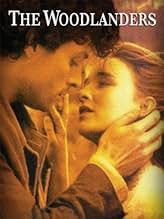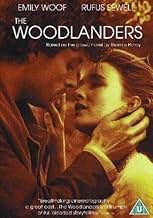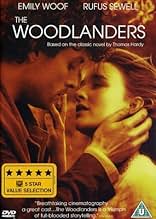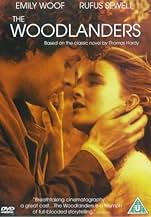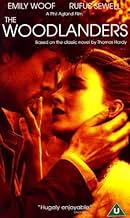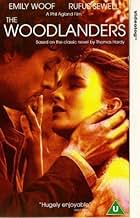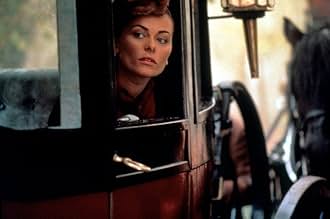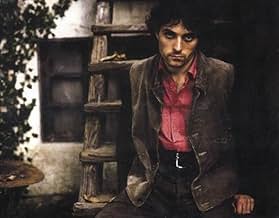The story is set in late 19th century rural corner of South England. The daughter of timber merchant Melbury, Grace, returns to the town after finishing school. Her father now believes she c... Read allThe story is set in late 19th century rural corner of South England. The daughter of timber merchant Melbury, Grace, returns to the town after finishing school. Her father now believes she can find a better husband than her childhood sweetheart, woodsman Giles. She marries handso... Read allThe story is set in late 19th century rural corner of South England. The daughter of timber merchant Melbury, Grace, returns to the town after finishing school. Her father now believes she can find a better husband than her childhood sweetheart, woodsman Giles. She marries handsome young doctor FitzPiers, but soon finds out he's not the man of her dreams and she still... Read all
- Awards
- 3 wins & 1 nomination total
- Director
- Writers
- All cast & crew
- Production, box office & more at IMDbPro
Featured reviews
This is also a wonderful discovery for those of us who have come to love movie versions of Thomas Hardy novels (or stories). It tells the story of a young woman who has been sent off to finishing school by her father so that she can rise above the level she has grown up in: the lower- class timber workers of the deep woods in 19th-century rural England.
Though she and a local woodlander had had an agreement to marry when they came of age, her father wants something better for her and encourages her to marry a local doctor who lives and practices in the village. She agrees to marry the doctor, but soon learns that he cannot stand the crude rustic manners of the local people.
This sets up a series of conflicts between her and her father as well as the way she feels about the life she had been raised in and the life that her father wants for her. I love the way the story unfolds as well as the dark (and often wet) sylvan atmosphere that it so capably captures and inhabits.
I cannot agree with comments made concerning the scenes dragging or the film itself lacking cinematic scope. Some critics have taken this view but I believe this is rather an indication of how susceptible critics can be to saying what they think people will expect them to say (whilst conveying the distinct impression that they are the most bravely objective critics in the world).
No, this is a film which refuses to go at the pace expected of it but, rather, courageously moves at the precise pace demanded of it by the overall direction and approach. I am glad I haven't read the book because it might have tempted me to try to make a like-for-like comparison and thereby go on to make erroneous deductions.
The two mediums, film and literature, demand different approaches and, to me anyway, this thoughtfully filmed tale is at ease with itself and that is all we can ask of it. It is not trying to be Gone With The Wind or even Pride and Pejudice, nor should it make the attempt.
Like Bleak House, it will completely glide past the attention span of the viewer who is anxious for untimely progression or who is not mentally prepared for its purposely ponderous and understated theme. What I would suggest, most humbly, is that anyone with doubts set aside a whole evening with nothing else planned and no interruptions possible. Then forget anything you have previously experienced concerning this tale and view it afresh. Put away any cynical prejudgement and consciously assume that the film's understated acting is fully intended as such. Then I believe your experience and enjoyment of this film will improve no end.
The director was no doubt under immense pressure to make this tale more paced and juicy. I, for one, fully commend him for resisting this and producing a magnificently restrained U film, a truly English shared countryside, domestic and subtly romantic experience - at least for anyone allowing it the space to embrace them. VNP.
Performance-wise the cast is well-chosen, with gorgeous Rufus Sewell in the lead role as the brooding woodman Giles, who keeps his feelings for the now-better-than-he Grace (Emily Woof) to himself; as Fitzpiers, Cal Macaninch makes the character just as unsympathetic as he was in print (a close cousin to the Brontes' Edgar Linton is this starchy doctor). Jodhi May completes the mix as Marty, the village girl who remains doggedly devoted to Giles.
The countryside is photographed well but the momentum lacks the cinematic scope which would have made this a truly interesting film.
The story is faithful to the book, but omits some of the peripheral details. It's about a young woman who returns to a close knit woodland community after several years away. In that time, she has become an educated lady, and she finds it quite difficult to relate to the people she once grew up with, having experienced wider and more varied cultures. Her childhood sweetheart is a simple woodcutter, and she feels that she is now too "good" for him, so she forsakes her fondness for him and marries a wealthy and educated doctor, with tragic consequences.
The film was filmed in the New Forest (a gorgeous area of England) and it is a visual treat from first frame to last. The scenery is simply ravishing. Furthermore, the performances are very thoughtful and persuasive, complementing the sharp and carefully worked out script. This is definitely one of the best adaptations of a Thomas Hardy novel, and it can stand alongside Polanski's Tess and Schlesinger's Far From the Madding Crowd with its head held high.
Did you know
- TriviaFinal film of Sheila Burrell .
- Quotes
Marty South: Oh, Giles, if only you could tell your heart to be free.
Giles Winterbourne: You can't tell the heart. The heart hopes. Most of all where it's hopeless.
- How long is The Woodlanders?Powered by Alexa
Details
- Runtime1 hour 38 minutes
- Sound mix
- Aspect ratio
- 2.35 : 1
Contribute to this page


